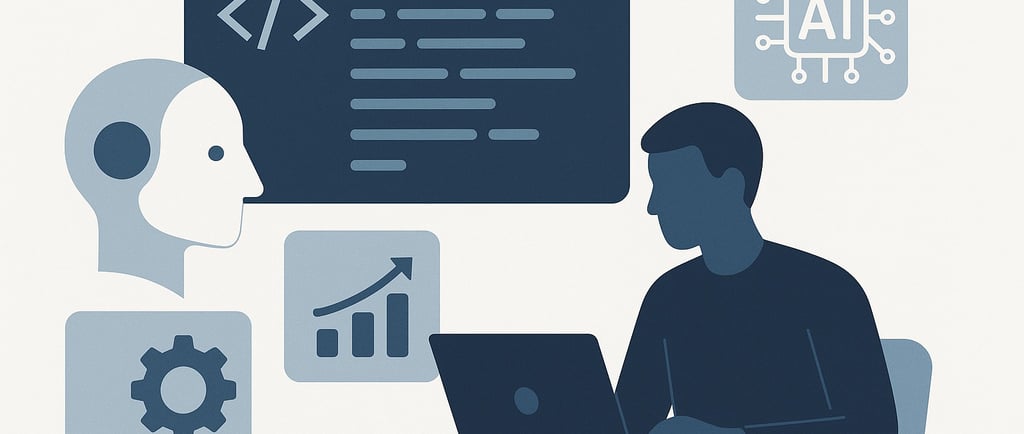The Future of Coding in an AI-Driven World
Microsoft's CTO Kevin Scott predicts that AI will generate 95% of code in the next five years, transforming the programming landscape. While human input remains vital, the role of programmers will evolve. Small, agile teams may soon accomplish large-scale projects with the help of AI tools, streamlining the development process significantly.
USAGEFUTUREWORKINVESTINGTOOLS
The AI Maker
10/2/20252 min read


As we look ahead to the next five years, the programming landscape is poised for a significant transformation, according to Microsoft CTO Kevin Scott. In a recent episode of the 20VC podcast, Scott boldly predicted that 95% of code will be AI-generated. However, he emphasizes that this doesn't mean humans will be sidelined in the programming process.
Scott, who has been in the programming field for over 41 years, draws parallels between the current shift towards AI in coding and the transition from Assembly language to high-level programming languages in the 1980s. Back then, some programmers believed that true coding prowess lay only in the ability to write in Assembly language. Today, such sentiments seem antiquated, and Scott believes the same will happen with AI.
He argues that the best programmers will adapt to these new tools, which are increasingly seen as essential in a developer's toolkit. As skepticism fades, more developers are recognizing the value of AI in their workflows. This evolution is not just about efficiency; it’s about democratizing coding skills, making it easier for anyone to create their own tools without relying on a developer.
While AI can lower the barrier to entry for coding, Scott notes that deep expertise will still be required for tackling complex computational problems. The landscape will shift from needing a large team of developers to potentially empowering smaller, agile teams to accomplish significant tasks. Scott envisions a future where small teams, armed with powerful AI tools, can execute projects that previously required many more hands.
Moreover, AI is likely to streamline the development process by reducing the need for middlemen who traditionally anticipated user needs. Instead of waiting for developers to create solutions for specific problems, users might soon be able to build tools themselves with the help of AI. This could revolutionize how we think about software development, making it more accessible and user-driven.
Despite these changes, Scott reassures us that the role of engineers is not going extinct. Instead, their responsibilities may evolve, allowing them to focus on more complex, high-level challenges while letting AI handle repetitive tasks. Like Garry Tan, CEO of Y Combinator, Scott believes that AI-assisted coding will empower small teams to achieve what would have previously required larger groups.
In summary, as AI continues to integrate into the coding process, we can expect a more collaborative relationship between humans and machines. Programmers will still play a crucial role, but the way they work will undoubtedly shift, creating opportunities for innovation and efficiency. Embracing this change may just be the key to unlocking the next wave of technological advancement.
Cited: https://www.businessinsider.com/microsoft-cto-ai-generated-code-software-developer-job-change-2025-4
Your Data, Your Insights
Unlock the power of your data effortlessly. Update it continuously. Automatically.
Answers
Sign up NOW
info at aimaker.com
© 2024. All rights reserved. Terms and Conditions | Privacy Policy
